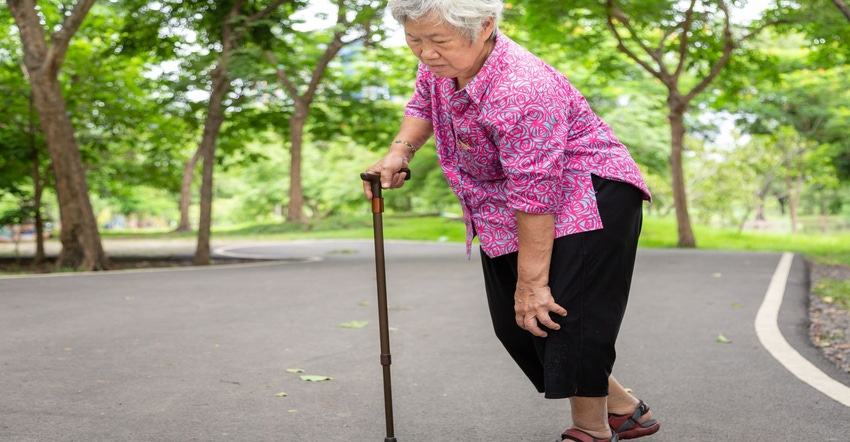PLT Health Solutions has announced results from a six-month study of its AprèsFlex branded ingredient. The results showing cartilage protection is a new finding, the company says.

A new study confirms the ability of a Boswellia serrata extract to support joint comfort and preserve cartilage, according to PLT Health Solutions, which has partnered in the ingredient’s development.
In conjunction with its “innovation partner” in India, Laila Nutraceuticals, PLT has been researching the ingredient, branded AprèsFlex, over several years.
The latest research shows a benefit in both knee comfort and cartilage preservation. While the study has yet to be peer reviewed and published, it is notable for its long duration.
PLT and Laila set up a study designed to last for six months to confirm earlier research that shows the ingredient is effective in a dose as small as 100 milligrams (mg).
The ingredient is a proprietary Boswellia serrata gum extract. According to PLT, several U.S. patents cover the ingredient, which is said to have higher bioavailability than competing Boswellia extracts.
Source verified as sustainable
Boswellia serrata, or Indian frankincense, is a deciduous tree native to the Indian subcontinent. Notches are cut into the tree trunks, and sap in the form of a gummy resin is collected from the wounds. This exudate has been a mainstay of Ayurvedic preparations for thousands of years.
The trees are relatively slow-growing and must be managed carefully to maintain both health and productivity. Boswellia ingredients have been gaining in popularity, which is why PLT hired Boulder, Colo.-based botanical expert Trish Flaster and her firm Botanical Liaisons to verify the sustainability of the company’s supply chain for the ingredient.
Flaster noted many sustainability concerns about Boswellia pertain to other, closely related species of the tree found in Africa and Asia and that are used as source material in the essential oil and fragrance trades. The India source is devoted to the supply of dietary ingredients, and in that country, for several reasons, the sustainability picture is good.
“These advantages include the economic incentives, inheritance system for trees and sense of ownership, the long lifespan of trees, the tremendous environmental care taken by the collectors, the natural habitat in Madhya Pradesh that is largely undeveloped and native, as well as the minimum pricing restrictions, inventories and training programs supported by industry and government,” Flaster said in a statement released by PLT Health Solutions at the time the results of the sustainability audit were made public in 2022.
Cartilage preservation verified in addition to mobility, comfort measures
The six-month double-blind, placebo-controlled study assessed both the subjects’ comfort and mobility as well as measures of cartilage preservation.
The new study done with 80 normal to overweight men and women aged 35-70 showed improvements in joint comfort, stiffness and physical function at the 1- and 3-month marks. According to PLT, the results also show those benefits seem to increase over time, with no plateau found in the duration of the study.
The study also measured functional outcomes, such as ease and speed in climbing stairs and walking, which are critical activities for seniors looking to maintain independence.
Finally, the most impressive result from PLT’s point of view was the maintenance of cartilage mass. While increasing comfort and lowering inflammation is certainly beneficial, more pain and stiffness is sure to follow if the joint’s architecture is degrading over time.
“Blood samples were collected to analyze the serum inflammatory (hsCRP and MMP-3) and cartilage metabolism biomarkers (Fibulin 3 and C2C). Urine samples were collected to analyze biomarker (Urinary CTX-II),” said Jeremy Appleton, PLT’s director of medical and scientific affairs.
In addition, MRI scans were taken to get a look at the structure of the joints. The results showed cartilage breakdown was greatly reduced and the spaces in the joints were preserved, rather than narrowing, which is what is normally observed in aging, painful knee joints.
While the present study, pending peer review, further elucidates the ingredient’s long-term potential, earlier studies have shown it starts working in as little as five days. Taken together, that has proven to be a winner in the market, according to PLT’s president and CEO Seth Flowerman.
“AprèsFlex is one of the world’s most widely used joint comfort ingredients, powering major consumer brands—because it works—and now we know that it keeps working for the long-term,” Flowerman said in a statement. “Working with our innovation partner Laila Nutraceuticals, PLT designed a study that could evaluate both the long-term potential for this ingredient and its ability to address the unmet needs of joint space preservation and cartilage protection.”
About the Author(s)
You May Also Like






.png?width=800&auto=webp&quality=80&disable=upscale)